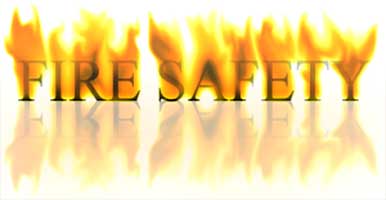Each year in North America, hundreds of people die and thousands more are injured in accidents involving electrical fires or shocks. Most of these incidents can be prevented by following simple electrical-safety rules:
Electrical cords and outlets
- Never overload electrical outlets, and use only one appliance per extension cord.
- Maintain all electrical cords. Replace any cord that is cracked, frayed or otherwise damaged. Also, replace cords that become hot when in use.
- Never allow an electrical cord to become crimped against walls or furniture.
- Don’t run extension cords under rugs or across doorways, and never hang them over nails.
This may cause the insulation to deteriorate, exposing a wire that can cause a fire or electric shock.
- Have a professional electrician replace old or damaged outlets with modern, three-wired, polarized receptacles. Proper grounding is essential to minimize fire and shock hazards.
- Plugs should match outlets. Three-pronged plugs require three-wired receptacles or a properly grounded adapter. Polarized plugs with one prong wider than the other require polarized receptacles.
- Never cut off or bend the ground pin of a three-pronged plug. This ground connection protects from severe shock caused by a faulty cord or malfunctioning appliance.
- Never alter the wide prong of a polarized plug to make it fit into an outdated outlet.
- Protect children from electrical shock by installing plastic safety inserts in unused outlets.
Fuses and circuit breakers
- If a fuse blows or a circuit breaker is tripped, don’t just replace or reset it. Find out what caused the circuit to overload and correct the problem.
- Never replace a fuse or circuit breaker with one that exceeds the amperage rating for a given circuit.
- Avoid using several high-amperage appliances – such as irons or other heat-producing appliances – on the same circuit.
- Never replace a fuse with material that conducts electricity.
You can spot many electrical problems before they cause a fire or shock.
Be alert to the following danger signs:
- If fuses blow or circuit breakers trip frequently, wiring may not be adequate. Shrinking television pictures and slow to heat irons and toasters are tip-offs that wiring may not be adequate. Call a licensed electrician to check and/or update wiring in the home.
- Feeling a tingle when you touch an electrical seasonal light.
- Discoloration of wall outlets.
- A burning smell or unusual odour coming from an appliance or wiring.
- Sizzling sound at wall switches or outlets.
- Flickering lights. If you cannot locate a problem inside your home, call your power company or an electrician immediately.







